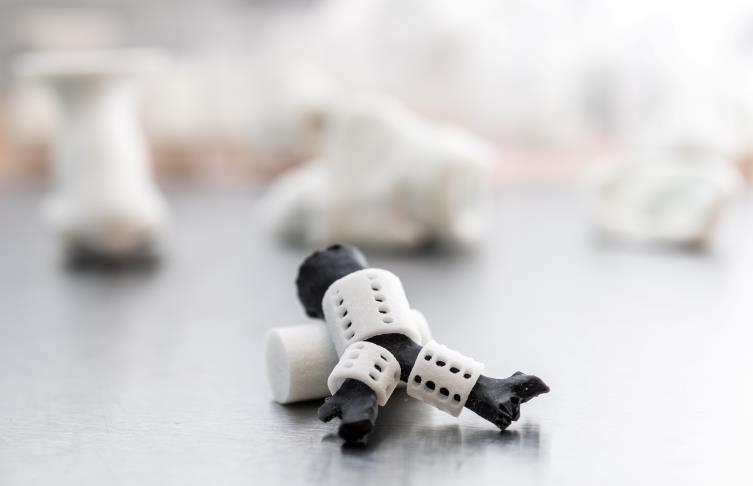
Section Branding
Header Content
Doctors in Atlanta use 3D-printed devices to help infants with airway disease breathe on their own
Primary Content
LISTEN: A team of Georgia Tech engineers and doctors with Children’s Healthcare of Atlanta have developed a 3D-printed device to help transition some kids off ventilators. GPB’s Ellen Eldridge has more.

Airway support devices created with 3D printing technology are making their way into patients at Children's Healthcare of Atlanta, one of whom turns 4 this week.
The trachea splint that Emmanuella Altidor's daughter, Justice, wears is custom-made with bioabsorbable material that dissolves as her airway strengthens.
Children’s pediatric cardiologist Dr. Kevin Maher and Dr. Steven Goudy, a pediatric otolaryngologist, reviewed Justice's case for eligibility under the U.S. Food and Drug Administration's expanded access program.
After receiving permission from the FDA and her parents, in October 2020, surgeons implanted the device that allows Justice to breathe freely.
Tracheal splints are designed on an individual basis for patients with life-threatening cases of pediatric tracheomalacia, a rare disease caused by a weak airway that collapses when the child breathes.
"Basically, the windpipe in infants can sometimes be floppy and so it can collapse and cause respiratory distress, respiratory failure," Maher said. "So, a lot of these kids get stuck on the ventilator for months to even years."
Children’s Healthcare of Atlanta is one of a handful of places in the United States where 3D printing technology is used to help patients on ventilators. And Georgia Tech is the only location capable of custom printing these innovative tracheal splints.
Four patients, including Justice, have these airway support devices from the team at Children's.

